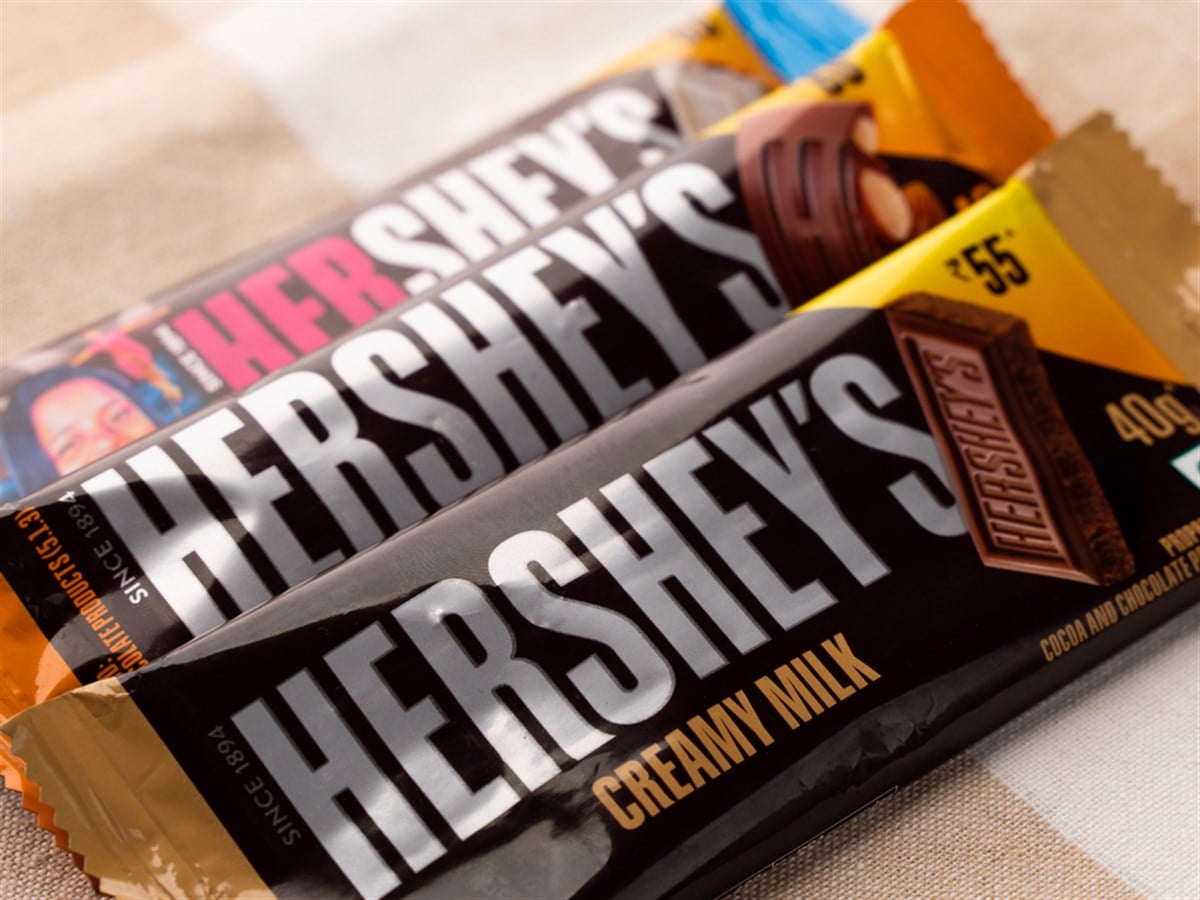Why Hershey Stock Has More Room to Run Despite Takeover Rejection
There has been a systemic decline in consumer staples stocks over the past couple of months, bringing into question whether Hershey is a buy or not.
This story originally appeared on MarketBeat

The start of December 2024 brought a story that some investors were already expecting to see, just not in the way that it happened. Despite rising cocoa prices and a seeming disinterest in consumer staples stocks, shares of Hershey Co. (NYSE: HSY) rallied on some unexpected news. For those who understand a value investment, the news of a potential takeover bid was nothing out of the ordinary.
For reasons that will become clear in just a minute, Hershey stock—and the company behind it—is a screaming buy at these prices, even after the recent rally. Even without any financial analysis of the business, investors can lean on this fact: Hershey’s management decided to reject the offer, citing that the valuation given on the takeover bid was “too low.” Contrary to what some may think, that is an excellent move that Wall Street analysts agree with.
Before a deep dive into the company’s strengths and what might lie ahead to trigger a potential buying spree in its stock, the details of this takeover bid from Mondelez International Inc. (NASDAQ: MDLZ) should be covered first so that it is understood what was brought to the table and why management decided that it wasn’t good enough of an offer today. Whichever way it is looked at, chances are this stock has enough double-digit upside potential stored in it for the coming months.
The Takeover Bid Hershey Turned Down: Offer Details and Management’s Reasons for Rejection
While no sources are quoting the size of the deal offered by Mondelez, there are ways that investors can reverse engineer what the initial bid might have been. The way markets led the stock to a high of $208 a share on the news is one way to set expectations, both where Mondelez might have approached a bid and where management thought it too low.
This $208 per share price would represent a market capitalization of up to $39 billion on a valuation basis. Yet, it is only a fraction of the company’s size just over a year ago at $56 billion. Taking it from a historical perspective, investors could guesstimate that the stock is then worth anywhere from $208 a share to its all-time high of roughly $275 a share.
There are a few reasons why management would reject this offer, one of which is that most staple brands in the market today are losing favor to other hot developments in the technology sector, namely artificial intelligence and quantum computing.
This is why stocks like Coca-Cola Co. (NYSE: KO) and PepsiCo Inc. (NASDAQ: PEP) have traded lower in the past few months. The stock market is a popularity contest in the short term, and the contest is being won by other more exciting names, making these solid brands potential buys today.
This is Why Hershey Stock Has More Upside Ahead
Now that investors have a proxy for a potential valuation range in Hershey’s stock, it is time to dig a little deeper and dissect the public opinion around this stock and the reasons why that opinion is so. When it comes to Wall Street analysts, the consensus view of a $185.2 a share valuation doesn’t do justice to where this stock should trade.
In April of 2023, analysts thought the stock should have a price target of up to $265 a share, yet something has stayed the same from then to today, making it a little suspicious as to why price targets have declined so much. This could be due to the declining stock price, putting additional pressure on analysts to reflect the market’s opinion.
However, Hershey’s financials will tell a completely different story, one that could soon turn analyst opinions on their heads. The company’s gross margins, which stood at 44.5% as of the past 12 months, signal a potential moat and pricing power dynamic in the brand’s market share.
Retaining so much capital after each sale allows management to effectively reinvest in the business and create further enterprise value, which is why investors will notice a return on invested capital (ROIC) rate of up to 25% for Hershey.
This is important because annual stock prices tend to match the long-term ROIC rate over time; that is also why investors will see a 200% outperformance in Hershey stock against the S&P 500 over the past 24 years, one that would have been closer to 500% if it wasn’t for the stock’s decline over the past 12 months.
Another gauge to back this belief can be found in institutional investing; as of November 2024, those at State Street felt confident enough in the stock’s value that they boosted their holdings in it by 5.8%, bringing their net positions to a high of $1.3 billion today, or 3.5% ownership in the company.

The start of December 2024 brought a story that some investors were already expecting to see, just not in the way that it happened. Despite rising cocoa prices and a seeming disinterest in consumer staples stocks, shares of Hershey Co. (NYSE: HSY) rallied on some unexpected news. For those who understand a value investment, the news of a potential takeover bid was nothing out of the ordinary.
For reasons that will become clear in just a minute, Hershey stock—and the company behind it—is a screaming buy at these prices, even after the recent rally. Even without any financial analysis of the business, investors can lean on this fact: Hershey’s management decided to reject the offer, citing that the valuation given on the takeover bid was “too low.” Contrary to what some may think, that is an excellent move that Wall Street analysts agree with.





